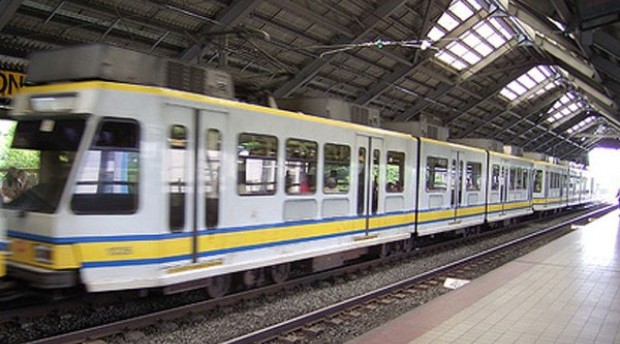Proposed fare hike for LRT-1 blocked
MANILA, Philippines–A party-list group will put up a road block against the government’s proposed fare hike for the Light Rail Transit (LRT) Line 1 because it will double the transportation expenses of the riding public.
Bayan Muna Rep. Neri Colmenares said that the government had agreed to the fare increase just to fulfill the demands of the Light Rail Manila Consortium (LMRC)—composed of Ayala Corp. Infrastructure Holdings, Metro Pacific Investments Corp. (MPIC) and Macquarie Infrastructure Holdings Philippines PTE Ltd.—which was recently awarded the right to build the P64.9-billion LRT-1 Cavite extension project.
“The ink has hardly dried with the signing of the LRT-1 extension and a fare hike is immediately [in] the offing. We will do all we can to stop this fare hike,” Colmenares added in a statement.
The LMRC said that the proposed fare hike (P11 base fare plus P1 per additional kilometer) was crucial to its ability to get loans to bankroll the project which would extend the railway by 11.7 kilometer from its Baclaran-Pasay City terminal to Bacoor, Cavite and boost its total capacity from 500,000 passengers to 800,000 passengers per day.
Colmenares cited a study by Ibon Foundation which showed that the fare hike—scheduled for implementation as early as Aug. 1 this year based on the concession agreement—translated into a boarding fee of P12.13 plus a distance fare of P1.10 per kilometer or a 101.7 percent increase in fares per trip.
Article continues after this advertisementHe said that the contract of the Ayala-Metro Pacific consortium allowed it to hike its fares by 10.15 percent every two years starting in August 2016 on top of the automatic adjustments for inflation (every four years), a five percent hike after completion in three years, and pass-on cost adjustments of up to five percent to cover fluctuations in electricity bills.
Article continues after this advertisementColmenares warned that as the biggest PPP project awarded by the government, the LRT-1 extension project also had the most concessions granted by the state that were “greater than the sweetheart deals” forged in previous administrations.
The Ibon study revealed that the government would subsidize P34.9 billion, or 54 percent, of the extension line’s total project cost which would be used for right of way acquisition, purchase of coaches and civil works; government would set aside a P5-billion additional subsidy to cover any shortfall in funding requirements; and the private consortium would get easy payment terms: only 10 percent of the cost payable up front with the balance to be paid on a quarterly basis after five years. Colmenares said that these perks alone would ensure that the consortium would be getting the lowest borrowing costs available in the market.
In the fine print of the agreement, Colmenares said the private consortium was assured of collecting the higher fare rates even if the official rates approved by authorities were lower as the government was committed to shoulder the difference between the two.
Sought for comment, Department of Transportation and Communication (DOTC) spokesman Michael Sagcal said that the proposed fare hike was unavoidable although the project, once completed, would benefit the public in the long run.
“The proposed fare increase is inevitable just like the implementation of the LRT-1 Cavite Extension project which will bring world-class railway access to employees and educational opportunities to residents of southern Metro Manila and Cavite,” he told the Inquirer.
“It is only a matter of time before the increase is likewise implemented, having been originally proposed three years ago. The DOTC will continue pushing for progress through worthy projects such as these for the benefit of the riding public,” Sagcal added.–With Miguel Camus
Originally posted: 10:43 pm | Monday, October 6th, 2014
